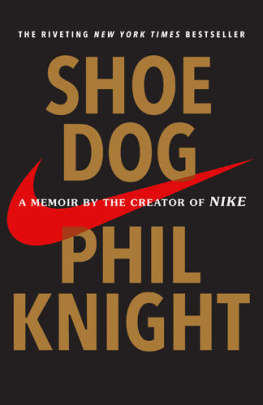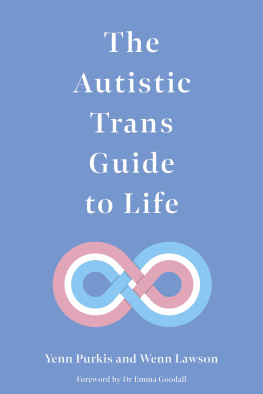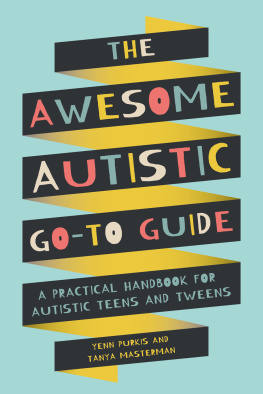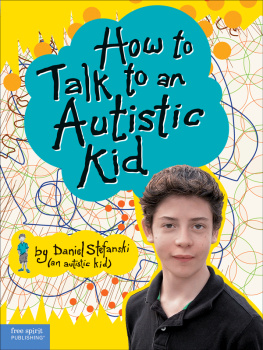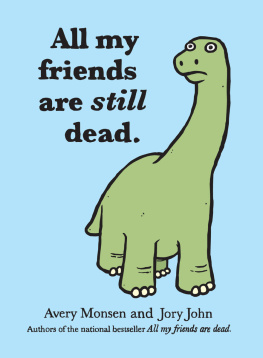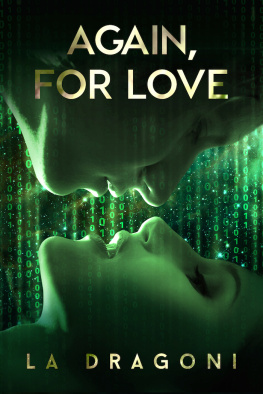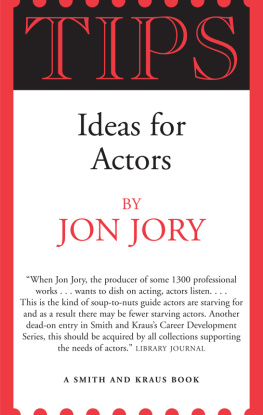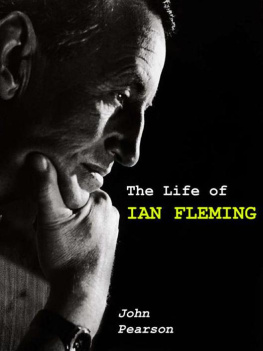Jory Fleming - How to Be Human: An Autistic Mans Guide to Life
Here you can read online Jory Fleming - How to Be Human: An Autistic Mans Guide to Life full text of the book (entire story) in english for free. Download pdf and epub, get meaning, cover and reviews about this ebook. year: 2021, publisher: Simon & Schuster, genre: Religion. Description of the work, (preface) as well as reviews are available. Best literature library LitArk.com created for fans of good reading and offers a wide selection of genres:
Romance novel
Science fiction
Adventure
Detective
Science
History
Home and family
Prose
Art
Politics
Computer
Non-fiction
Religion
Business
Children
Humor
Choose a favorite category and find really read worthwhile books. Enjoy immersion in the world of imagination, feel the emotions of the characters or learn something new for yourself, make an fascinating discovery.
- Book:How to Be Human: An Autistic Mans Guide to Life
- Author:
- Publisher:Simon & Schuster
- Genre:
- Year:2021
- Rating:4 / 5
- Favourites:Add to favourites
- Your mark:
- 80
- 1
- 2
- 3
- 4
- 5
How to Be Human: An Autistic Mans Guide to Life: summary, description and annotation
We offer to read an annotation, description, summary or preface (depends on what the author of the book "How to Be Human: An Autistic Mans Guide to Life" wrote himself). If you haven't found the necessary information about the book — write in the comments, we will try to find it.
How to Be Human: An Autistic Mans Guide to Life — read online for free the complete book (whole text) full work
Below is the text of the book, divided by pages. System saving the place of the last page read, allows you to conveniently read the book "How to Be Human: An Autistic Mans Guide to Life" online for free, without having to search again every time where you left off. Put a bookmark, and you can go to the page where you finished reading at any time.
Font size:
Interval:
Bookmark:
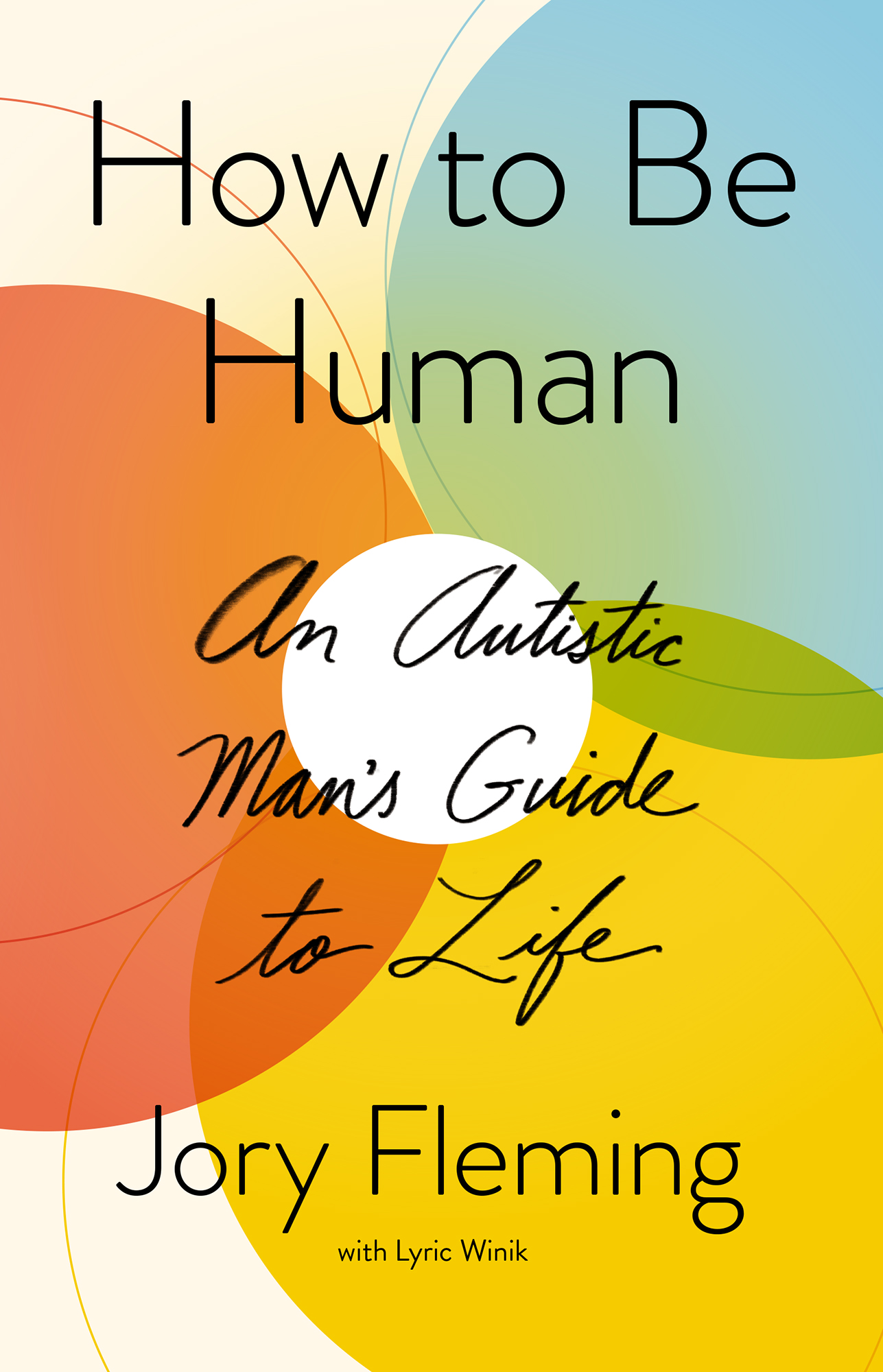
How to Be Human
An Autistic Mans Guide to Life
Jory Fleming with Lyric Winik



Simon & Schuster
1230 Avenue of the Americas
New York, NY 10020
www.SimonandSchuster.com
Copyright 2021 by Jory Fleming
All rights reserved, including the right to reproduce this book or portions thereof in any form whatsoever. For information, address Simon & Schuster Subsidiary Rights Department, 1230 Avenue of the Americas, New York, NY 10020.
First Simon & Schuster hardcover edition April 2021
SIMON & SCHUSTER and colophon are registered trademarks of Simon & Schuster, Inc.
For information about special discounts for bulk purchases, please contact Simon & Schuster Special Sales at 1-866-506-1949 or .
The Simon & Schuster Speakers Bureau can bring authors to your live event. For more information or to book an event, contact the Simon & Schuster Speakers Bureau at 1-866-248-3049 or visit our website at www.simonspeakers.com.
Interior design by Carly Loman
Jacket design by Henry Sene Yee
Library of Congress Cataloging-in-Publication Data
Names: Fleming, Jory, author.
Title: How to be human : an autistic mans guide to life / Jory Fleming.
Description: First Simon & Schuster hardcover edition. | New York : Simon & Schuster, 2021. | Summary: A remarkable and unforgettable memoir from the first man with autism to attend Oxford on a Rhodes scholarship, revealing what life is really like inside a world constructed for neurotypical minds while celebrating the many gifts of being differentProvided by publisher.
Identifiers: LCCN 2020029847 | ISBN 9781501180507 (hardback) | ISBN
9781501180514 (ebook)
Subjects: LCSH: Fleming, Jory,Mental health. | Autism. | Autistic peopleUnited StatesBiography. | College studentsUnited StatesBiography. | Autistic peopleSocial aspects. | Autistic peopleLife skills guides.
Classification: LCC RC553.A88 F57 2021 | DDC 616.85/882dc23
LC record available at https://lccn.loc.gov/2020029847
ISBN 978-1-5011-8050-7
ISBN 978-1-5011-8051-4 (ebook)
To Momnow the world can see how much you have given me.

This book should not exist. Diagnosed with autism at age five, struggling with severe language delays, unable to succeed in a traditional elementary school, Jory Fleming wasnt expected to graduate from high school. There was no guarantee he could complete four years of college. The thought that he would be awarded a Rhodes Scholarship to study for a masters degree at Englands prestigious Oxford University was practically unthinkable to almost everyone, including Jory himself.
Yet today, Jory has an MPhil from Oxford appended to his name.
This is not a happy-ending, motivational story or a step-by-step manual for how people with autism can achieve success. Jory is the first to say he does not want to be a poster child for autism or think he can provide an easy answer key to autistic understanding. Im certainly not expecting anyone to completely understand autism who doesnt have it. Thats unreasonable. In the same way, I cant fully understand them. Even if two people who are very well-intentioned try to explain it to each other, there will be some things where both of us will shake our heads or shrug our shoulders and be like, I cant get there.
Rather, Jorys story is a window into what it is like to live in a world constructed for neurotypical brains when your mind is not. It is the story of what it is like to begin each day knowing that you are fundamentally different from every other person pouring coffee or tea into their mug. It is a memoir of life inside a gifted and disparate mind.
As Jory shares his insights into thinking and navigating in a neurotypical world, it may lead you to question basic assumptions about how all of our minds work.
The first few times I spoke with Jory, my brain hurt. Physically hurt, the way my muscles wince after moving stacks of heavy boxes or on that first spring afternoon when I dig too long in the garden. Twice, I had to stop; my concentration was shot, mentally following his train of thought was akin to swinging a pickaxe through a channel of my own brain that had closed over years ago, or perhaps had never existed. And yet I think those images and that exhaustion are as close as I can get, in my own words, to explaining what it is like for Jory when he engages with much of the outside world.
He speaks so powerfully about the mental energy required for him to move through his day, of the constant balancing act he must undertake to manage the sensory chaos produced by the human world and yet still have his mind remain open and engaged, rather than drained and shut.
It got easier, for me, and I hope for him. I became more adept at following his kaleidoscope of ideas. Our conversations were never linear; instead, they expanded outward and veered sideways without fixed destinations. I came to appreciate his abhorrence of small talk; he became grudgingly tolerant of my requests for lists of things, such as words that make sense to him and words that dont, which he found tedious, and I found illuminating.
Gradually, as our chats continued, I began to reassess how my own brain is wired. Are there some situations where it is far better to approach a problem largely devoid of emotion? How imperfect is language in communicating? How much weight should be given to words? How much information do we miss when we interact with a group in a crowded room? And still bigger concepts: What is culture? What is disability? Who has value? Should imperfection or illness or painful difference be scientifically edited out of our genetic code and of society at large? Should it not? What is the deeper meaning of birds? What is faith? Plus one sentiment that stopped me cold: Because no human-generated space is going to be a safe space for me forever.
And most of all, how to capture that in a book?
The answer: let Jory speak for himself.
To that end, I sat with hundreds of transcript pages from conversations, many conducted over Skype, but some had on walks through the British university city of Oxford or seated on park benches, overlooking quaint English gardens, surrounded by the twitter of birds.
We would often circle back to the same topic weeks or even months apart, so I took the liberty of grouping related material in one place. I cleaned up the usual excesses of likes, reallys, justs, and half phrases, while leaving a few behind. I pruned back the many things and somethings and general repetition where it hindered clarity. Since Jorys words flowed from conversations, I included various forms of prompts, whether a question, a transition, or an identifier to give some context and architecture and a bit of a sense of our back-and-forth. The beginning also contains a brief guide to brain science and the development of our scientific understanding of the human brain, to ground and contrast with Jorys depiction of how his own mind works.
Font size:
Interval:
Bookmark:
Similar books «How to Be Human: An Autistic Mans Guide to Life»
Look at similar books to How to Be Human: An Autistic Mans Guide to Life. We have selected literature similar in name and meaning in the hope of providing readers with more options to find new, interesting, not yet read works.
Discussion, reviews of the book How to Be Human: An Autistic Mans Guide to Life and just readers' own opinions. Leave your comments, write what you think about the work, its meaning or the main characters. Specify what exactly you liked and what you didn't like, and why you think so.

